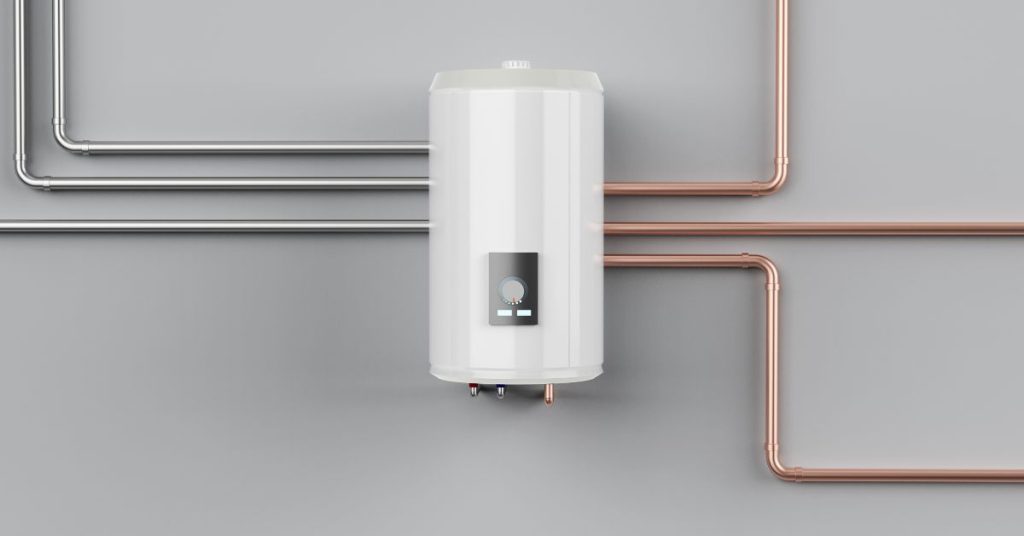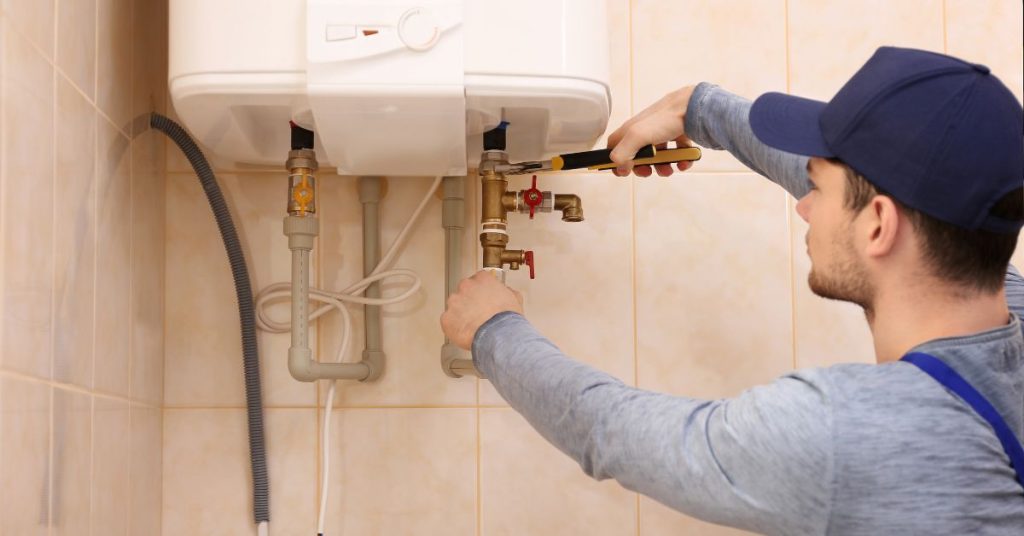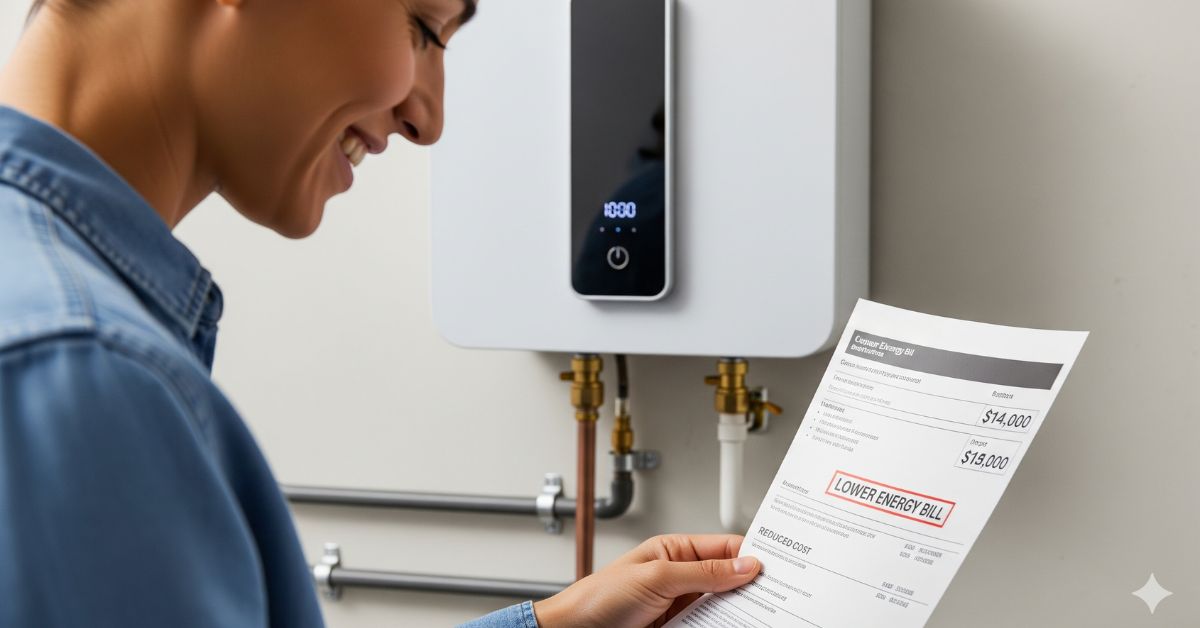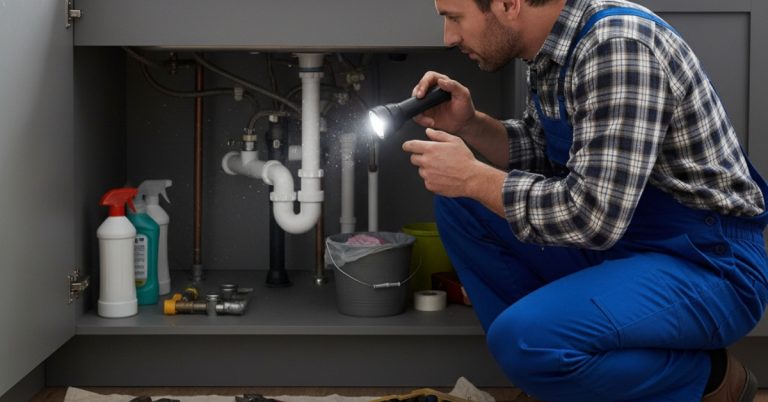Tankless water heater energy savings come from heating water only when needed, avoiding standby heat loss, and using energy more efficiently, which can significantly reduce your utility bills over time.
Key Takeaways:
- No standby heat loss
- Heats water on demand
- Increases energy efficiency
- Reduces long-term utility bills
When it comes to reducing household expenses, one of the most effective ways is by upgrading to a tankless water heater. Traditional water heaters constantly store and reheat water, leading to wasted energy and higher utility costs. In contrast, tankless systems provide hot water on demand, improving efficiency and lowering monthly bills. Below, we’ll explore in detail how tankless water heaters save energy, increase convenience, and provide long-term financial benefits.
Table of Contents
Understanding the Difference Between Tank and Tankless Systems
A conventional water heater stores 40–80 gallons of hot water in a tank, reheating it throughout the day—even when not in use. This “standby heat loss” significantly increases energy consumption.
A tankless water heater, also called an on-demand water heater, works differently. Instead of keeping a large volume of water hot, it uses powerful heating elements or gas burners to instantly heat water as it flows through the system. This process eliminates wasted energy and ensures a continuous supply of hot water.
Why Tankless Water Heaters Are More Energy Efficient

The U.S. Department of Energy states that tankless water heaters are 24% to 34% more energy-efficient for households that use less than 41 gallons of hot water daily. Even for larger households, efficiency remains 8–14% higher compared to storage tank systems.
Key reasons include:
- No standby heat loss – Traditional tanks constantly reheat water. Tankless units heat only when needed, eliminating standby heat loss and saving energy.
- On-demand heating – Water is heated instantly as it flows through the unit, providing hot water only when required, without continuous cycling.
- Smaller carbon footprint – Lower energy use means fewer fossil fuels burned, resulting in decreased greenhouse gas emissions and a more eco-friendly home.
- Adaptive technology – Advanced models regulate energy output based on water flow, maximizing efficiency and reducing unnecessary energy use during low demand.
Lowering Monthly Utility Bills with Tankless Water Heaters
By cutting unnecessary energy waste, tankless systems directly lower monthly energy bills. Unlike a traditional 50-gallon electric water heater that constantly heats stored water, tankless units only work when hot water is needed. This efficiency translates into significant savings, as households can save up to $100 annually on electricity costs. For those using natural gas models, the savings typically range between $50 to $75 per year, depending on how much hot water the household consumes.
When looking at the long-term tankless water heater cost benefits, these yearly savings add up quickly. Over a 15–20 year lifespan, homeowners can save thousands of dollars, far outweighing the upfront installation investment. Beyond the financial advantages, the consistent energy efficiency makes tankless systems a smarter, more sustainable choice for modern households.
Long-Term Cost Savings and Durability
Tankless water heaters typically last 20 years or more, nearly twice as long as traditional models that often need replacing after just 10–12 years. This extended lifespan significantly reduces long-term replacement costs, making them a smart financial choice for homeowners seeking durability and reliability over time.
An added benefit of an eco friendly tankless water heater is its design with replaceable parts. Instead of replacing the entire unit, homeowners can repair specific components, lowering maintenance costs and reducing waste. This sustainable approach supports both cost savings and environmental responsibility.
Get your water heater repaired or replaced the same day
Hot Water on Demand Without Waste
Another major benefit is endless hot water. Traditional water heaters can run out during periods of heavy use, leaving households waiting for the tank to refill. In contrast, tankless systems heat water on demand as it flows through the unit, providing a continuous supply without delay.
This on-demand functionality is especially valuable for large families or homes with multiple bathrooms, where simultaneous hot water use is common. With a tankless system, everyone can enjoy hot showers or run appliances at the same time—without the inconvenience of running out of hot water.
Space-Saving Design and Home Value Boost
Unlike bulky tank water heaters, tankless systems are compact and wall-mounted, saving valuable floor space. This streamlined design is perfect for smaller homes, apartments, or condos where maximizing storage is essential. By freeing up utility room space, homeowners gain more flexibility in organizing their living areas.
In addition to space efficiency, tankless water heaters can enhance home resale value. Energy-efficient upgrades appeal to today’s eco-conscious buyers, who often view these systems as modern, premium features. As a result, homes with tankless units tend to stand out in competitive real estate markets.
Environmental Impact of Tankless Water Heaters
Switching to a tankless system doesn’t just benefit your wallet—it also supports a more sustainable lifestyle. Unlike traditional units that constantly heat stored water, tankless models only activate when hot water is needed, significantly reducing energy waste and lowering your household’s carbon footprint over time.
Tankless systems help reduce household emissions, supporting climate goals outlined by the U.S. Environmental Protection Agency. Gas-powered tankless heaters operate with higher fuel efficiency, while electric models can be combined with solar panels for a greener, renewable solution. This makes tankless water heaters an environmentally conscious choice that contributes to long-term energy conservation and aligns with global sustainability goals.
Installation Considerations and Upfront Costs

While tankless water heaters are a smart investment, it’s important to understand the tankless water heater installation process and costs:
- Initial investment – Tankless systems typically cost more upfront, averaging $1,200–$3,000 installed, depending on the model and household requirements.
- Professional installation – These systems require skilled technicians for safe and efficient setup, especially for gas-powered units that need ventilation.
- Possible upgrades – Homes with outdated plumbing or electrical systems may require modifications before installation.
Despite these initial expenses, the long-term savings on energy bills, reduced maintenance, and extended lifespan make tankless water heaters a cost-effective choice.
Tankless Water Heaters vs. Traditional Systems: A Quick Comparison
Feature | Tank Water Heater | Tankless Water Heater |
Energy Efficiency | Lower (standby losses) | Higher (on-demand) |
Hot Water Supply | Limited, runs out | Endless supply |
Lifespan | 10–12 years | 20+ years |
Size | Bulky, floor-standing | Compact, wall-mounted |
Monthly Costs | Higher | Lower |
Environmental Impact | More emissions | Reduced carbon footprint |
Tips to Maximize Savings with a Tankless Water Heater
To get the most out of your investment:
- Choose the right size – Select a unit that matches your household’s water usage.
- Schedule annual maintenance – Flushing and descaling ensure peak efficiency.
- Pair with energy-efficient appliances – High-efficiency dishwashers and washers further reduce energy demand.
- Use water-saving fixtures – Low-flow showerheads and faucets cut both water and heating costs.
By following these steps, you can maximize both energy efficiency and long-term cost savings.
Final Thoughts: Smarter Energy Savings with Tankless Water Heaters
Choosing a tankless water heater is more than just an upgrade—it’s a smart investment in your home’s future. From lowering monthly utility bills to reducing your environmental impact, the benefits are long-lasting and substantial. With energy-efficient technology, extended lifespan, and on-demand hot water, tankless systems provide comfort, savings, and peace of mind for years to come.
Ready to enjoy these cost-saving and eco-friendly advantages? Contact the trusted experts at 5 Star Best Plumbing. Our skilled team will guide you through the installation process and ensure your system runs efficiently from day one. Make the switch today and start saving smarter!
FAQs
How do tankless water heaters save energy compared to traditional water heaters?
Tankless water heaters eliminate standby heat loss by heating water only when needed, rather than constantly reheating stored water. This on-demand heating boosts energy efficiency by up to 34% for most households.
Will a tankless water heater provide enough hot water for a large family?
Yes, tankless systems supply endless hot water as it heats water instantly during use. For very high simultaneous demand, multiple units or a larger capacity model may be necessary.
Are tankless water heaters more expensive to install?
Tankless water heaters have a higher upfront cost, typically ranging from $1,200 to $3,000 including installation. However, their long lifespan and energy savings make them more cost-effective over time.
How long do tankless water heaters typically last?
Tankless water heaters usually last 20 years or more, nearly double the lifespan of traditional tank models. This durability reduces replacement frequency and maintenance costs.
Can tankless water heaters help reduce my household’s carbon footprint?
Yes, because they use energy more efficiently and reduce wasted heat, tankless heaters lower greenhouse gas emissions. Gas models burn fuel more cleanly, and electric versions can integrate with renewable energy like solar panels.








